IHD Evidence for Success Disability Conference 2025 Recap
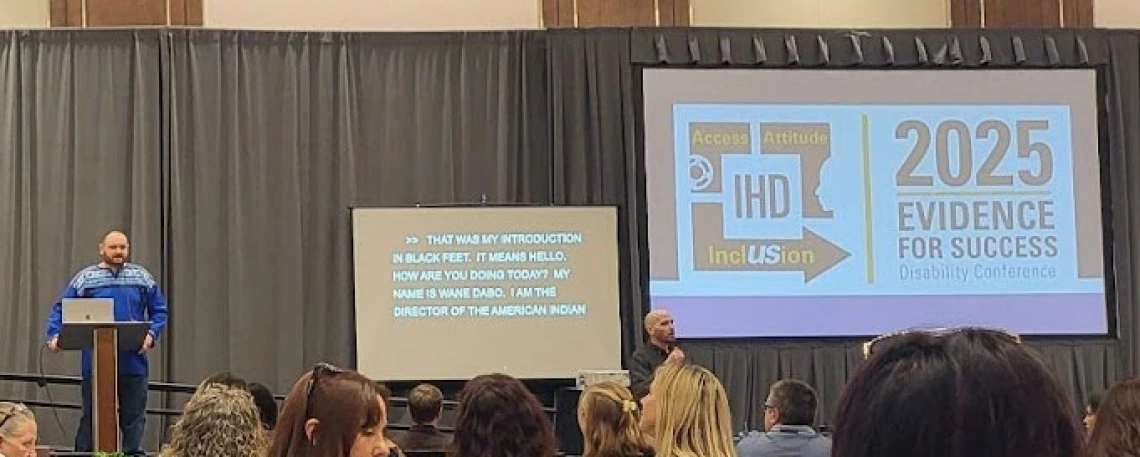
By Drew Milne
On June 23 & 24, 2025, the Sonoran Center joined dozens of organizations from Arizona and beyond for the Northern Arizona University’s Institute for Human Development (IHD) Evidence For Success Disability Conference. Taking place in Phoenix, AZ, the IHD Evidence for Success Conference is an annual event that brings together advocates, students, professionals, and educators to share innovations and best practices in the disability field.
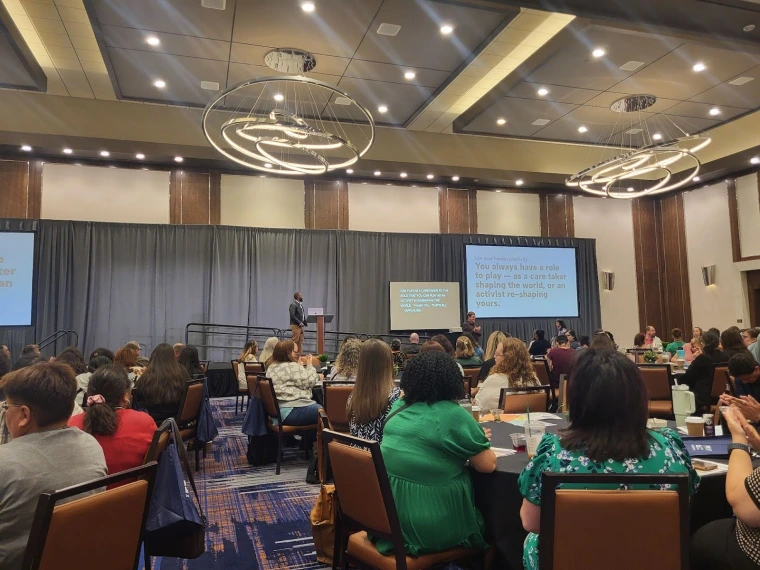
The conference opened with a keynote by Lawrence Weru, titled “Navigating the Opportunities and Challenges for Disability-Inclusive AI”. Weru told his story of how a simple attempt to buy a jacket online led him down a rabbit hole of inaccessibility and poorly-implemented artificial intelligence (AI) features. From there, Weru explored ways that organizations can strike a balance between the many ways that AI can be helpful for people with disabilities while avoiding its biases and pitfalls.
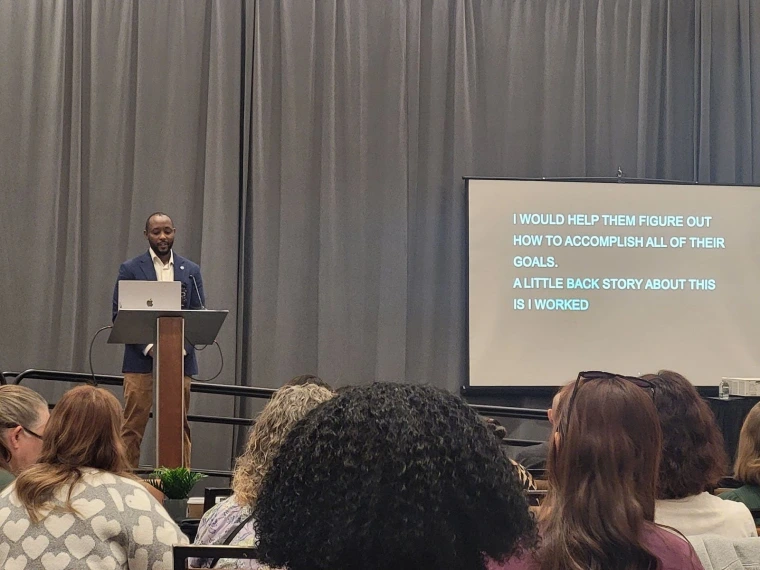
Following the keynote, attendees could participate in a variety of informational sessions, including presentations and forums. These were organized into several “tracks”, including Assistive Technology, Innovative Practices in Disability Disciplines, and American Indian/Alaska Native Vocational Rehabilitation and Employment.
“One of the coolest things about IHD is their assistive technology sessions about AI and how it can be integrated in VR services,” said Kelsey Montano
The Sonoran Center had multiple representatives leading several sessions, including a session led by Rosa Rojas-Franco and colleagues titled "Community Leads the Way”.
“I enjoyed that session because of how it was centered around community members; what's working, what's not, and how service models can take into account communities and cultural needs,” Rosa Rojas-Franco said. .
Other sessions included a session by Mỹ Lê Sandaine called “Customized Employment in Arizona: Pilot, Impact, and What’s Next”, and “Building Bridges: Strengthening School Partnerships For Effective Pre-ETS and Work-Based Learning” by Loretta Alvarez and Kelsey Montaño.
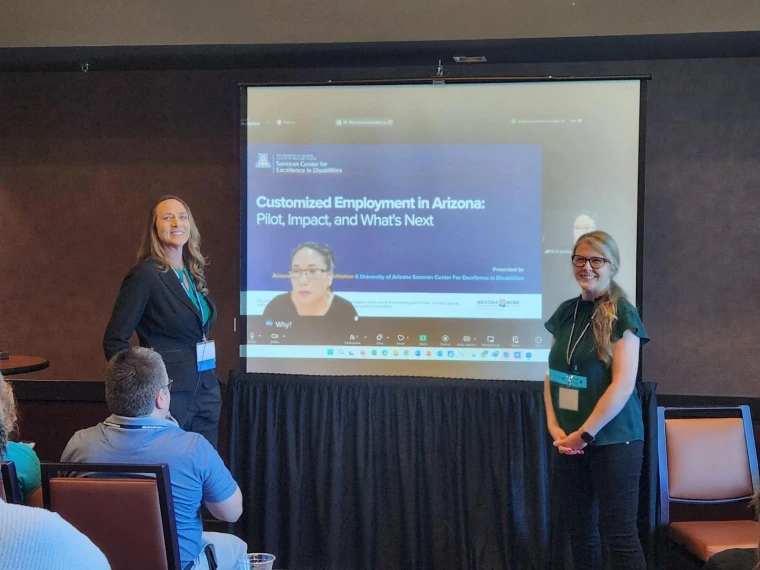
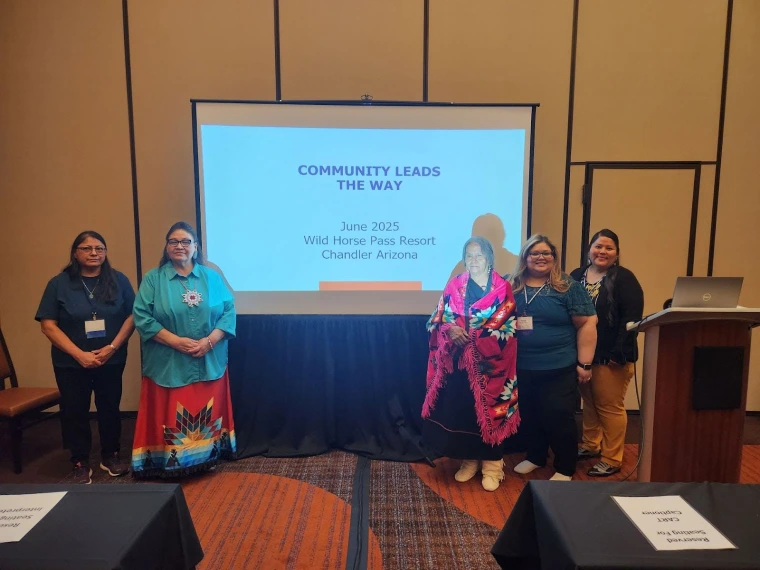
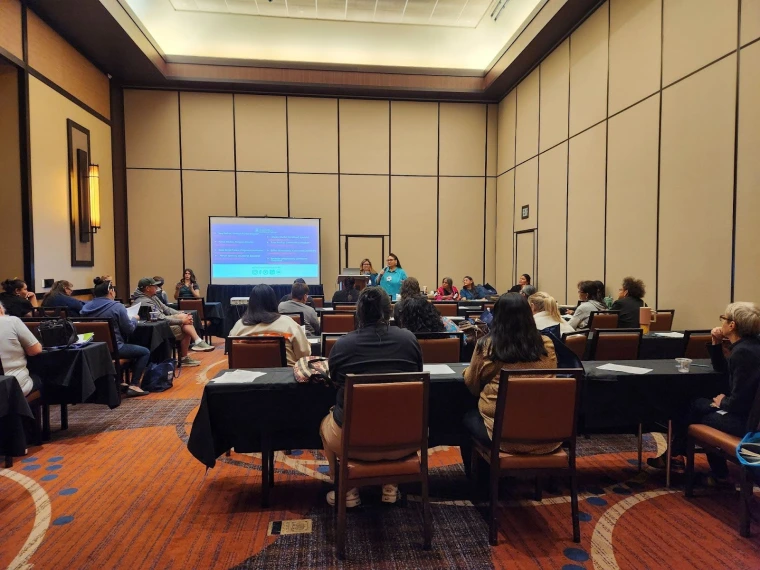
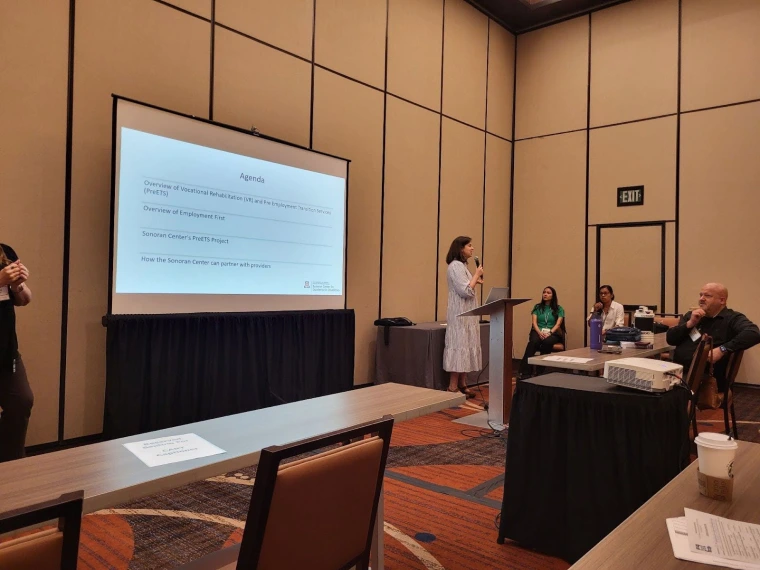
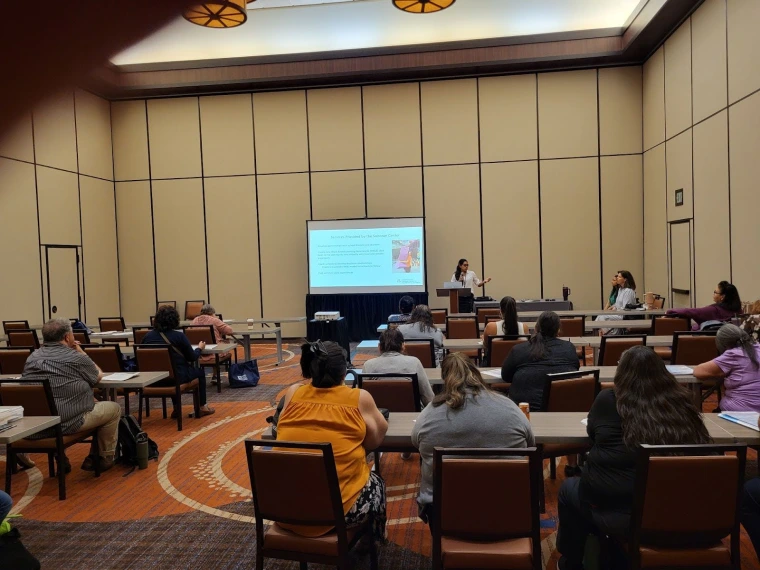
Throughout the conference, participants could also find posters from various participating organizations displayed in the hallways between conference rooms. On Tuesday, organizations were invited to present their posters in a poster symposium, with representatives delivering a brief presentation and providing the opportunity for attendees to ask questions about the posters. Sonoran Center Content Coordinator Drew Milne presented a poster on the Accessible Communication webinar series. Jennifer Haggerty presented two posters, one a cross-state analysis of Home and Community Based Service waivers and another on mental health of mothers of autistic children.
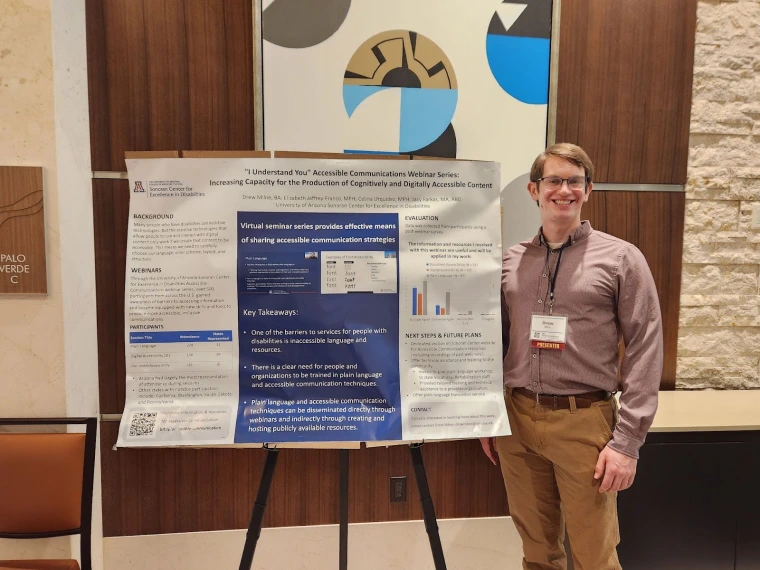
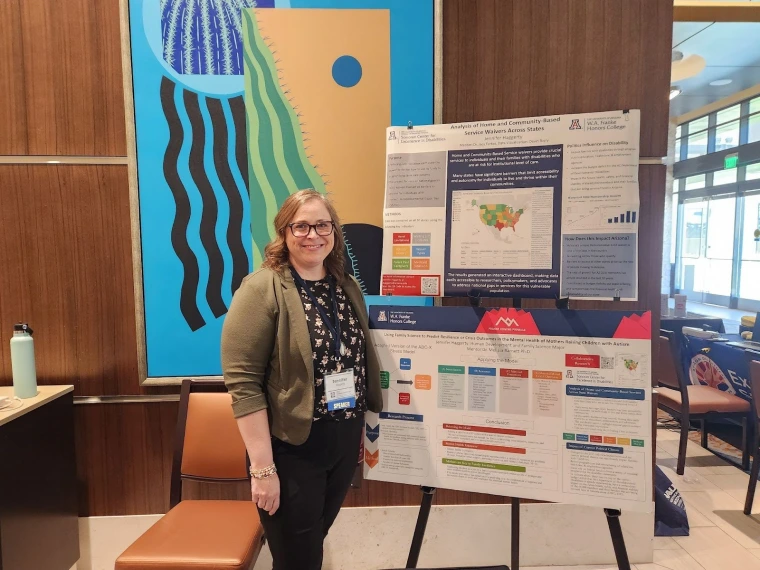
The conference closed on Tuesday with remarks from Rachel Simon, author of the acclaimed memoir Riding the Bus With My Sister. Simon described the events that led up to writing her memoir, what was changed in the adaptation into a feature-length movie, and how her life has unfolded since then. Through it all, Simon emphasized how her sister achieving her own sense of agency and self-advocacy gave them the shared space to truly connect as siblings.
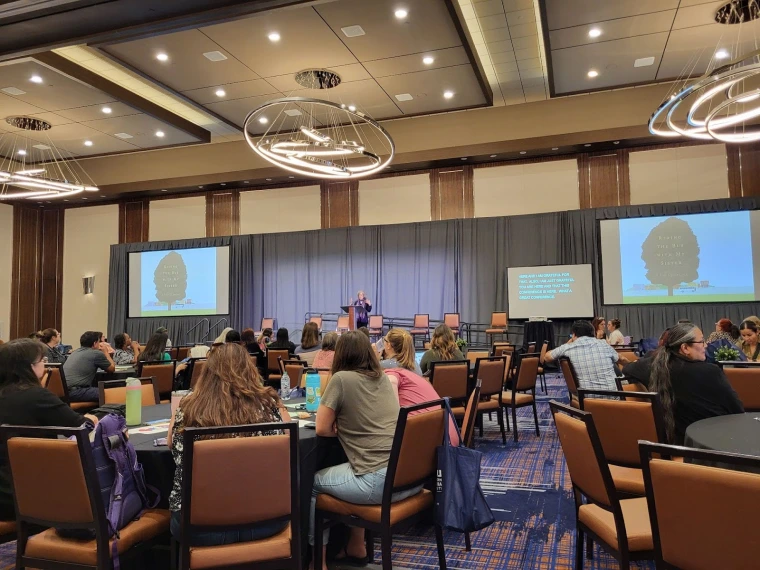
While the conference officially ended on Tuesday, the Sonoran Center and the Institute for Human Development at NAU (the other University Center for Excellence in Developmental Disabilities in Arizona) took the opportunity to host a joint meeting of Arizona UCEDD’s on Wednesday. The meeting explored how the two UCEDD’s can collaborate across the state to better serve the disability community of Arizona. This will be the beginning of a closer working relationship between the Arizona UCEDD’s, so stay tuned for more!
